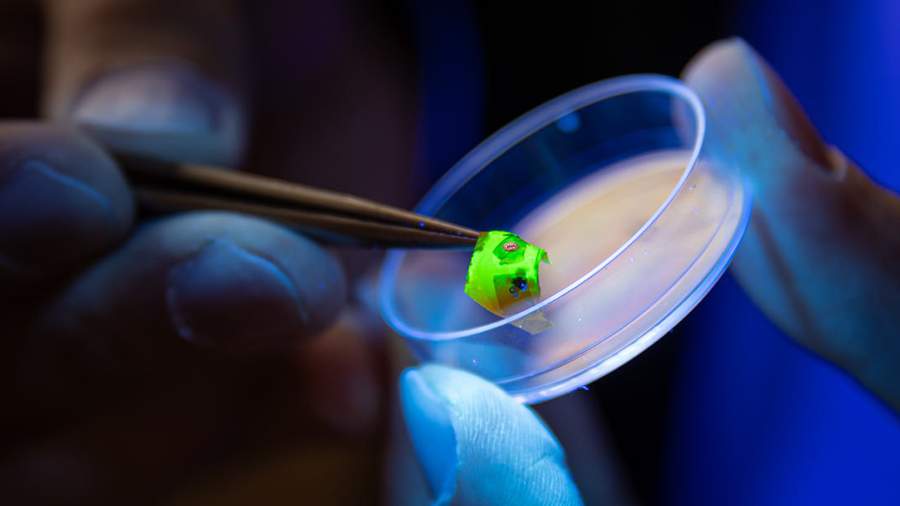Specialists have taught cells to reproduce "alien" DNA

Specialists from Peter the Great St. Petersburg Polytechnic University (SPbPU) and Academic University have proposed a method of DNA delivery to the cell using nanowires.
These are super-thin filamentous crystals made of semiconductors, which due to their unique geometry can pass through the cell membrane. Through the resulting hole, the plasmid (a circular nucleic acid molecule) penetrates the cell, and as a result, the cell begins to produce the foreign protein encoded in it. This process is called transfection. The technology can be used in the production of medicines.
"The original idea was to create a system of transfection - the delivery of nucleic acids into cells. For modern life sciences, transfection is one of the most important tasks, because it makes it possible to force cells to synthesize not only those proteins that are embedded in their DNA, but also any other, arbitrary ones. Thus, on the one hand, it is possible to study the effect of turning on or off certain processes on the cell or even the whole organism, and on the other hand - to obtain in large quantities of desired proteins, such as monoclonal antibodies, widely used in the therapy of various diseases, "- said senior researcher at the Academic University Stanislav Shmakov.
The scientists have created a system in which an array of nanowires is produced on the surface of a multi-well plate, and DNA can be added directly into the wells, without prior preparation.
Read more in an exclusive Izvestia article:
Not without a wire: experts have taught cells to reproduce "alien" DNA
Переведено сервисом «Яндекс Переводчик»

